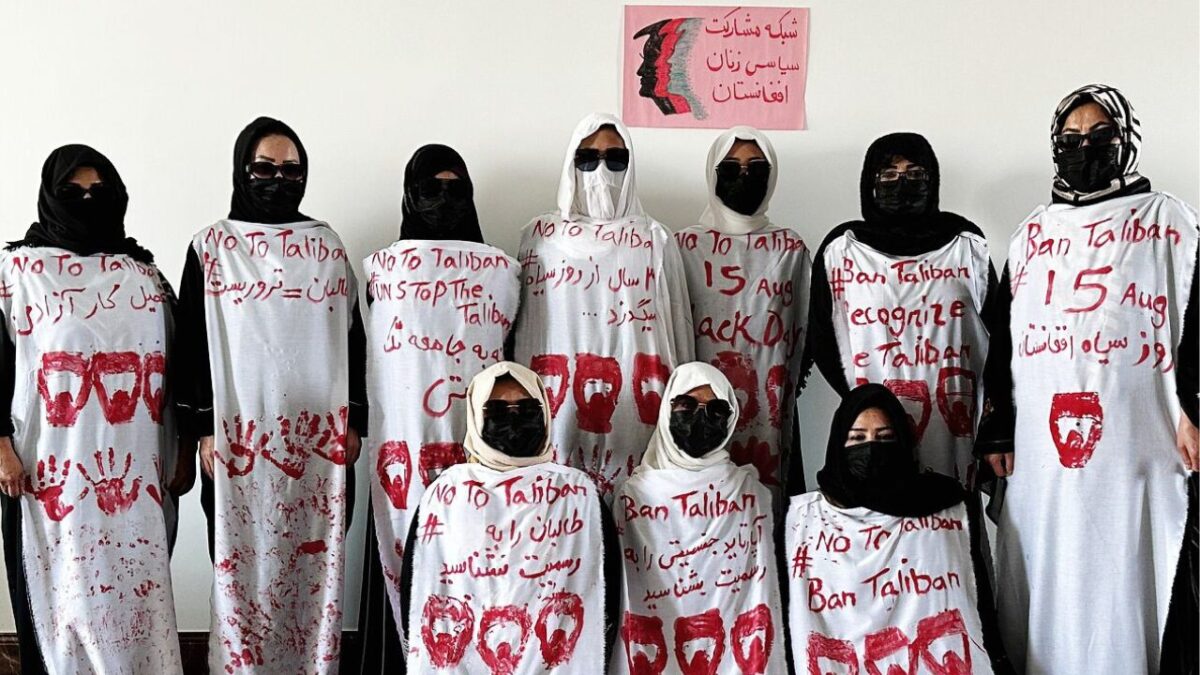KABUL, Afghanistan — The Taliban’s newly enacted “Vice and Virtue” law, signed by their leader, Haibatullah Akhundzada, introduces extensive and stringent restrictions across Afghanistan, particularly targeting women.
This 114-page, 35-article document grants sweeping powers to religious enforcers, known as “muhtasibs,” while imposing severe limitations on personal freedoms.
One of the most controversial aspects of the law is the declaration that a woman’s voice is considered “awrah,” or a source of temptation, which must not be heard in public.
The law mandates that women cover their faces and bodies entirely. The decree begins by stating that it will be enforced across Afghanistan in accordance with Sharia and the Hanafi school of Islamic jurisprudence.
Powers granted to enforcers
The law designates muhatisbs as the authorities responsible for enforcing these rules, providing them with powers parallel to those of the Taliban’s judicial and executive structures. This includes the ability to arrest and detain individuals. According to Article 24, enforcers are authorized to issue warnings, intimidate, punish, and imprison violators for periods ranging from one hour to three days, depending on what they deem appropriate. They also have the authority to confiscate property as a form of punishment.
Restrictions on women’s behavior and appearance
Article 13 of the law is particularly focused on women, imposing strict regulations on their behavior and appearance, including:
Mandatory Full-Body Coverage: Women are required to cover their entire bodies at all times.
Face Covering: Women must cover their faces to prevent “fitna” (temptation).
Prohibition on Women’s Voices: Women are forbidden from singing, reciting poetry, or reading aloud in public, as their voices are considered “awrah, or the intimate parts of human body.”
Clothing requirements: Women’s clothing must not be thin, short, or tight.
Segregation from Non-Mahram Men: Muslim women must conceal their bodies and faces from men who are not their mahram (close male relatives).
Avoidance of Non-Muslim Women: Muslim women are instructed to avoid non-Muslim or “immoral” women to prevent corruption.
Gaze Prohibition: Men and women are forbidden from looking at each other’s bodies or faces.
Mandatory Covering When Leaving the Home: Women must cover their voices, faces, and bodies whenever they leave their homes.
Media and public content regulations
The law extends the muttawins’ control over media and public content. Article 17, Section 3, prohibits the publication of images of living beings, which could lead to the shutdown of television channels, digital media, and print newspapers that rely on visual content. This raises significant concerns about the future of media in Afghanistan, where visual imagery is central to news and communication.
Public transportation and music bans
Article 19 imposes strict rules on public transportation, banning the playing of music, transporting unveiled women, the mixing of unrelated men and women, and the transportation of women without a male guardian. Drivers and passengers are also required to perform prayers at designated times. These measures further restrict women’s mobility and access to public life.
Additional prohibitions
Article 22 introduces a series of additional prohibitions, including:
Ban on Tape Recorders and Radios: The use of tape recorders, radios, and similar devices is restricted, especially when they broadcast women’s voices or music outside of private homes.
Prohibition on Viewing Images and Videos: Viewing images and videos of living beings on computers, mobile phones, or other devices is banned.
Prohibition on Shaving Beards: Shaving beards or trimming them beyond a fistful is forbidden, though the law does not specify what constitutes an “Islamic” hairstyle.
Ban on Cultural Celebrations: The law forbids the celebration of cultural holidays such as Nowruz and Yalda, as well as the wearing of neckties and other non-Islamic symbols.
Enforcement and potential impact
The law allows muttawins to refer individuals who neglect prayers or fasting to Taliban courts for punishment. These new restrictions represent a significant escalation in the Taliban’s efforts to enforce their interpretation of Islamic law, particularly in silencing and erasing women from public life. The decree severely curtails personal freedoms, including choices related to personal appearance, religious practices, and media consumption.
The United Nations has previously described the Taliban’s Ministry for the Promotion of Virtue and Prevention of Vice as “the greatest violator of human rights” in Afghanistan.
The implementation of this law further reinforces that reputation, as it introduces new levels of control and oppression in Afghan society.





